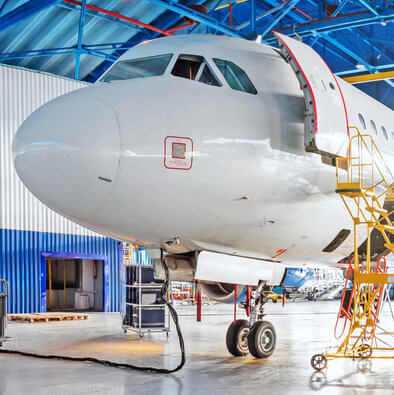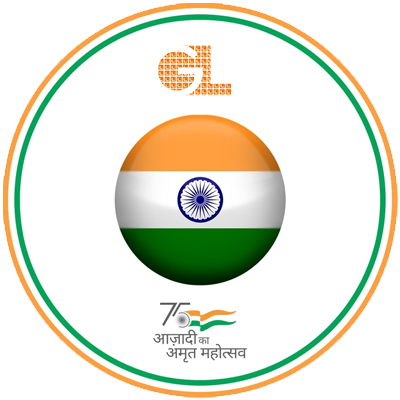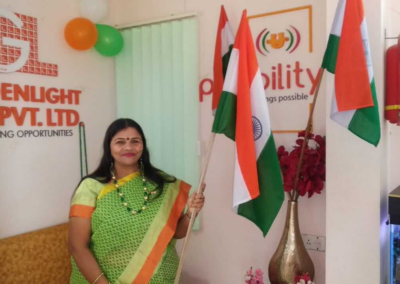Our Esteemed Clients
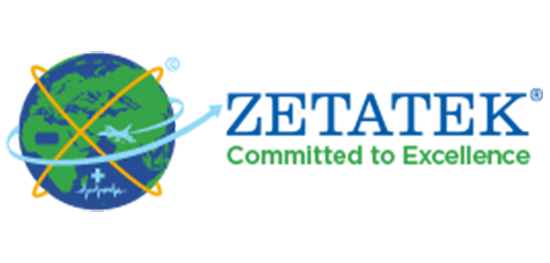

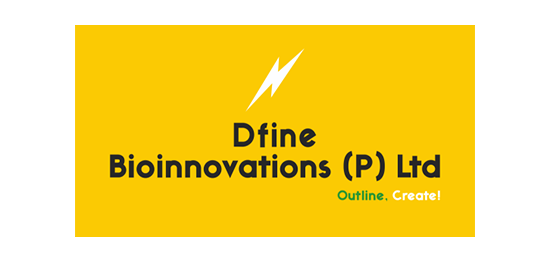


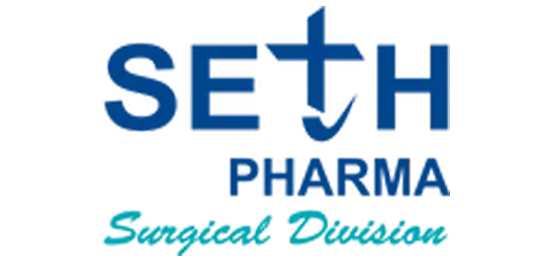



Industries we are in for QMS

Hospitals & Built Environment

Infrastructure

IT & ITES
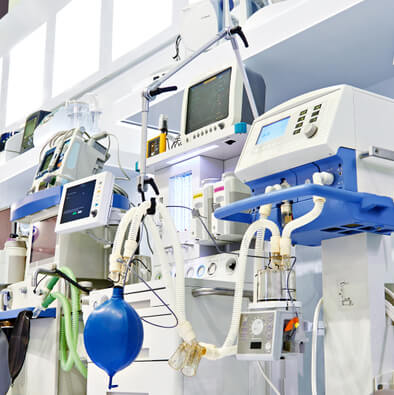
Medical Devices
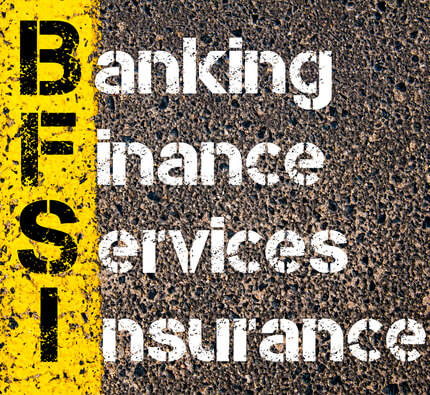
BFSI

Pharmaceutical

Power & Energy

Railways

Telecom

Textile
Medical Devices”QMS in India”
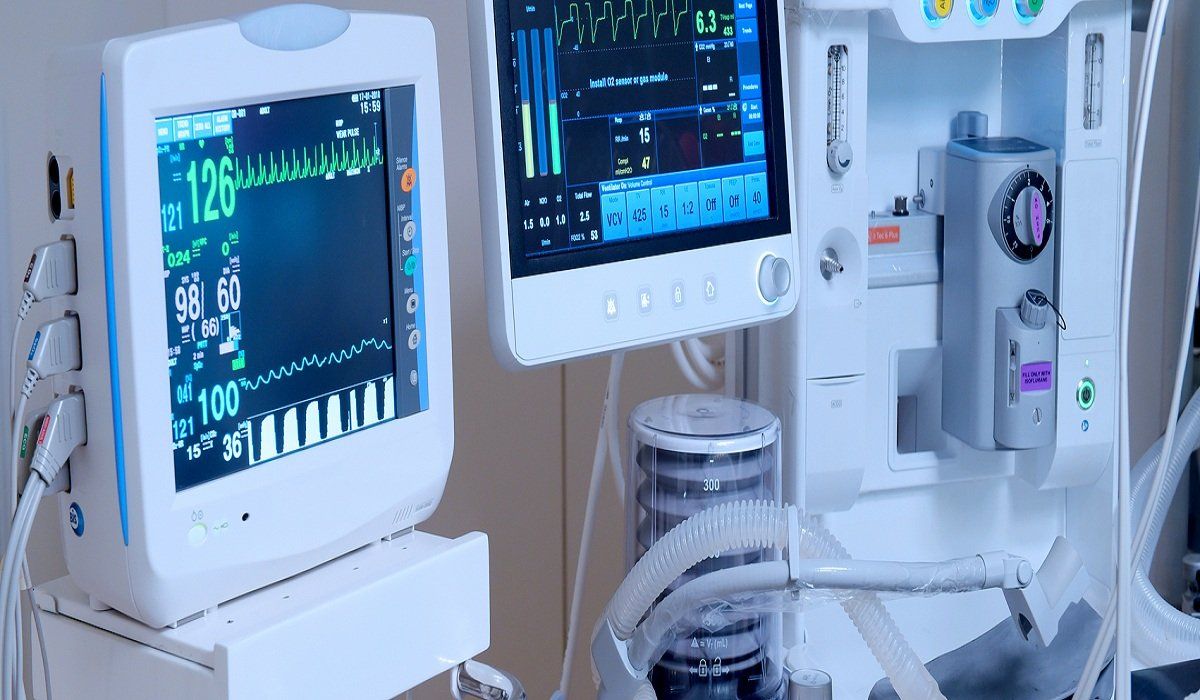
Best “QMS Service in India” Medical Device Consulting and training services shall assist your company to steer the complications of Indian and International medical devices wrt to Standards, Compliance and Regulations of your products for an eased Global Market Access”.
As one of the best Independent 3rd party Services “QMS in India”, Consulting and Training organizations with a global network of highly qualified auditors
We Offer the Following “QMS in India” Training:
- ISO 13485 – Awareness (1 day ) and Internal Auditor ( 3 days )
- Designing of Products as per EMI / EMC ( 3 days )
- IEC / EN 60601 series
- ISO / IEC 17025 – Trainings, Lab setup and accreditation support
- ISO 14971 – Medical Devices Risk Management
- CE Marking
Aerospace
It is a known fact that Aerospace industry must meet the highest levels of safety in “QMS in India”. It doesn’t matter if you are a Manufacturer or into designing of parts catering to the industry or are into repair and maintenance of the same it is highly imperative that you get certified by an Internationally recognized standards to prove that your company assures Quality of the best levels. Simply put Aerospace Industry is a part of a Global Network and the safety parameters you input sets you apart in the worldwide competition and ,also, ensures you the best customers.
Best “QMS in India” services in India GLS “QMS in India”
In addition to the regular training’s on “QMS in India” and other safety programs we specialize in Awareness / internal Auditor Training on:
- AS 9100 Rev D
- AS 9120
- AS 9110

Hospitals & Build Environment
“In this Pandemic times we have seen major fire accidents occurring in Hospitals, High rise buildings and Healthcare Centers due to minor errors, and these accidents resulted in huge losses not only to Property but also to many lives and hence at “QMS in India”, we now offer a broad portfolio of Training and Solutions to Hospitals and Healthcare Centers” “QMS in India”
- Inspections on Fire Safety, Electrical safety and HVAC Plans
- Facilitation to implement Quality Management Systems
- Facilitation of NABL Accreditation for Laboratories
- Facilitation for NABH
- Development of Staff in
- Lean Application for Increased overall Organizational Efficiency

AGRICULTURE, FOOD AND WATER

“Globally, “QMS in India” is assessed that around 25% deaths befall due to contamination and adulteration of food and water. Nearly 30-50% of the food borne diseases go overlooked in our country resulting in reduced productivity in work and man hours”.
Also, As we all know that every food business operator who manufactures Food Products and sells it in India will now have to bear the logo and a 14-digit registration or license number of the Food Safety and Standard Authority of India (FSSAI) which must be printed on food packages registration or license number – Indicating even government has taken the responsibility to getting to the fundamentals and is being conscious of the food safety and causes of contamination for our day to day life which is very essential and is of utmost importance in “QMS in India”.
We at Goldenlight Solutions – “QMS in India” division is also striving its best to play its part by providing the following programs:
- Basic food and Hygiene Training of “QMS in India”
- Training on GMPs
- Awareness Training on FSSAI Licensing
- Hazard analysis critical control point (HACCP) food safety management systems Training in QMS
- Awareness and Internal Auditor training on ISO 22000 : 2018
Automotive “QMS”

“QMS in India” With growing demand and policy support by Govt, India, with its significant cost advantages, may emerge as Global Manufacturing hotspot for Automobile Industry. this helps “QMS in India” With more and more reforms expected in the coming years it is predicted there can be positive upward curve in FDIs.
“Commendable growth of income in the Indian Middle-Class sector and Increase of buying power of the youth adds to a high demand to this Industry”.
GLS “QMS in India” programs on Automotive :
- Awareness / IAT on TS 16949 : 2016 New Automotive Standard
- Core tools – APQP, PPAP, SPC, MSA, FMEA
With a network of around 75+ highly qualified-tenured Auditors and Trainers spread across PAN and Global Market, Programs of GLS are:
- Customized and Comprehensive as per the latest trends and Market sensitivity
- Conducted under the capacity of In-house and Open houses
- Industry specific as per requirements
- Personalized LMS friendly for integration
Designing products as per EMI EMC compliance
These highly effective comprehensive trainings are targeted towards Quality Improvements and Implementation, and are a revolution in Todays scenario of Cost cutting. All QIT is exclusively designed for Industries with small /medium/ large requirement of trained manpower.
“QMS” in POWER AND ENERGY

Newer renewable electricity sources are expected to grow massively in the coming years, with India near about doubling its large wind power capacity and Increase of its Solar power by more than 15 times in “QMS in India”.
As per sources via Google searches, Overall, renewable electricity, which is on a constant growth curve, is predicted to grow by 1 200 GW by 2024, this is the equivalent of the total electricity capacity of the US. Industry experts predict that the US will double its solar installations to four million by 2023 in “QMS in India” .
“India is on its path to become one of the newest hot spots for Renewable Energy Investors”.
Best “QMS Service in India”.
GLS – QMS Programs on Solar “QMS in India” :
- Installers training of Photo Voltaic (PV) panels– Roof top and Open Places
- Training on Off- Grid and On-Grid designs for PV
- Designing and Implementation of Solar Power plants
Certification Standards
Standards give you the framework to implement change and improve your products, processes and people. Our certification services cover codes of practice, national, international and sector specific standards.
ISO 9001: Quality Management Systems (QMS)
ISO 9001 is the internationally recognized standard for Quality Management Systems (QMS). It is the most widely used QMS standard in the world, with over 1.1 million certificates issued to organizations in 178 countries.
ISO 9001 provides a framework and set of principles that ensure a common-sense approach to the management of your organization to consistently satisfy customers and other stakeholders. In simple terms, ISO 9001 certification provides the basis for effective processes and effective people to deliver an effective product or service time after time.
ISO 14001: ENVIRONMENTAL MANAGEMENT
ISO 14001 is the international standard for environmental management systems (EMS) and the most widely used EMS in the world, with over 360,000 ISO 14001 certificates issued globally.
ISO 14001 is the principal management system standard which specifies the requirements for the formulation and maintenance of an EMS. This helps to control your environmental aspects, reduce impacts and ensure legal compliance. Studies show that as much as 70% of total office waste is recyclable; however, only 7.5% reaches the recycling facility.
ISO 14001 is accompanied by ISO 14004 Environmental Management Systems – General Guidelines on principles, systems and support techniques. The standard covers issues such as the establishment, implementation, maintenance and improvement of an EMS.
Nearly any business can benefit from achieving certification to ISO 14001 standards. The certification is broad enough to offer significant benefits to organizations in any industry or sector, while still providing a specific framework for implementing relevant sustainable practices.
ISO 45001: Health and Safety Management
ISO 5011:2018 is one of the International Standards for Occupational Health and Safety
ISO 50001: ENERGY MANAGEMENT
ISO 50001:2018 is the newly revised international standard for Energy Management providing the most robust framework for optimising energy efficiency in public and private sector organizations.
ISO 50001 certification demonstrates an organization’s commitment to continual improvement in energy management, allowing them to lead by example within their respective industries and ensure related legislative and regulatory requirements are met.
It will also provide organizations with a standard that ensures requirements are met for compliance with the Energy Saving Opportunities Scheme (ESOS) UK legislation.
ISO 22301: BUSINESS CONTINUITY MANAGEMENT
In the event of an emergency, many businesses and organizations must have the ability to mitigate damage and continue operating. ISO 22301 is the international standard for Business Continuity Management (BCM). Published by the International Organization for Standardization, ISO 22301 is designed to help organizations prevent, prepare for, respond to and recover from unexpected and disruptive incidents. To do so, the standard provides a practical framework for setting up and managing an effective business continuity management system. ISO 22301 aims to safeguard an organization from a wide range of potential threats and disruptions.
This standard may be right for your organization if you need to demonstrate to stakeholders that your organization can rapidly overcome operational disruption to provide continued and effective service.
Around the world, many countries have legislation in place to define the emergency planning responsibilities of organizations. Those responsibilities often include the implementation of Business Continuity Management. As a result, ISO 22301 certification should be considered essential to any organization legally required to engage in contingency planning, including utilities, transport, health and essential public services. Whether you need to implement the standard to remain in compliance with industry regulations or not, pursuing ISO 22301 certification can help your organization develop resiliency and improve risk management.
AS9100 / AS9110 / AS9120 / AS6081: AEROSPACE MANAGEMENT
What is the AS series of standards?
The AS series of standards are the quality management systems standard applicable to companies that supply to the aviation, space and defense industries. These standards incorporate all of ISO 9001 but include additional industry requirements specific to the aerospace industry.
ISO 27001: INFORMATION SECURITY MANAGEMENT
ISO 27001:2013 is the international standard that provides a framework for Information Security Management Systems (ISMS) to provide continued confidentiality, integrity and availability of information as well as legal compliance. ISO 27001 certification is essential for protecting your most vital assets like employee and client information, brand image and other private information. The ISO standard includes a process-based approach to initiating, implementing, operating and maintaining your ISMS.
ISO 27001 implementation is an ideal response to customer and legal requirements such as the GDPR and potential security threats including: cyber crime, personal data breaches, vandalism / terrorism, fire / damage, misuse, theft and viral attacks.
ISO 27701: GDPR COMPLIANCE
ISO/IEC 27701:2019 is a data privacy extension to ISO 27001. This newly published information security standard provides guidance for organizations looking to put in place systems to support compliance with GDPR and other data privacy requirements. ISO 27701, also abbreviated as PIMS (Privacy Information Management System) outlines a framework for Personally Identifiable Information (PII) Controllers and PII Processors to manage data privacy. Privacy information management systems are sometimes referred to as personal information management systems.
This reduces risk to the privacy rights of individuals and to the organisation by enhancing an existing Information Security Management System.
This standard is a great way of demonstrating to customers, external stakeholders and internal stakeholders that effective systems are in place to support compliance to GDPR and other related privacy legislation.
Organizations looking to get certified to ISO 27701 in order to comply with GDPR will either need to have an existing ISO 27001 certification or implement ISO 27001 and ISO 27701 together as a single implementation audit. ISO 27701 is a natural expansion to the requirements and guidance set out in ISO 27001.
ISO 22000: FOOD SAFETY MANAGEMENT
ISO 22000:2018 is the newly revised International Food Safety standard, designed to harmonize on a global scale the requirements for food safety management for businesses within the food chain.
ISO 22000 combines and supplements the core elements of ISO 9001 and HACCP to provide an effective framework for the development, implementation, monitorization and continual improvement of a documented Food Safety Management System (FSMS) within the context of the organization’s overall business risks.
ISO 22000 certification is intended for organizations seeking to establish a more focussed, coherent and integrated FSMS than is normally required by law. The standard requires meeting any applicable food safety related statutory and regulatory criteria into its food safety system.
FSSC 22000: FOOD SAFETY MANAGEMENT
Food Safety System Certification (FSSC) 22000 is an internationally accepted certification scheme based on a combination of ISO 22000 sector specific PRP and FSSC additional requirements. FSSC 22000 has been developed in respond to customer demands for a recognizable standard against which a food safety management system can be audited and certified.
FSSC 22000 was given Global Recognition by the GFSI (Global Food Safety Initiative), as well as other food safety schemes such as BRC or IFS. The certification scheme is owned by the Foundation for Food Safety Certification.
HACCP: FOOD SAFETY MANAGEMENT
Hazard Analysis and Critical Control Points (HACCP) is the most internationally recognised system based on production of safe food from a preventative approach. The guidelines for its application are stablished in the Codex Alimentarius CAP/RCP 1-19, Rev. 4 (2003).
A HACCP based system is a legal requirement in several countries, including USA and UE, at all levels of the food chain, with the exception of primary production.
Demonstrating a real commitment to food safety through HACCP compliance can also transform your brand and act as an effective entry-to-market tool, opening up new business opportunities around the world.
ISO 20000-1: IT SERVICE MANAGEMENT
Designed to help organizations deliver effective managed IT services to customers and maintain those standards overtime. ISO/IEC 20000 helps organizations efficiently deliver quality IT Service Management through a comprehensive process approach.
ITSMS implementation is designed to be a bedrock upon which to build continually improving service management systems. It is fully scalable to organizations large and small or to customers internal and external. Consider the benefits of developing an ITSMS as part of your organization’s customer satisfaction and business continuity strategies.
ESD S20.20: QUALITY MANAGEMENT
ElectroStatic Discharge (ESD) is the common occurrence of a momentary electrical shock given off by a person or virtually any ‘charged’ object.
ANSI/ESD S20.20 is the multi-industry standard for the development of ESD control programs that protect today’s increasingly sensitive electronic components, assemblies, and equipment from costly ESD damage and reduce down-time. Using the standard’s control methods and guidance, an organization can develop an ESD control program that protects devices down to 100v (class 1a) or less.
Used by numerous international OEMs and serving as the replacement for MIL-STD 1686, the S20.20 standard has quickly become highly regarded in the commercial electronic, telecommunication, aerospace, automotive, and medical device industries. In fact, the telecommunications industry standard TL 9000 references the S20.20 standard as a best practice for meeting ESD control needs.
An ESD control program helps eliminate costly component failures while increasing customer satisfaction. NQA’s ESDA-accredited Facility Certification program offers organizations a way to ensure that their programs meet the requirements and provides evidence of compliance for customer and marketing purposes.
ISO 13485: Medical Devices Management
ISO 13485:2016 the International Quality Management Systems for Medical Devices.
CMMC: GAP ASSESSMENT
The Cybersecurity Maturity Model Certification (CMMC) is the latest verification method put in place by the Department of Defense (DoD). This certification is the Department’s first attempt to set clear requirements for contractors when it comes to cybersecurity. The ultimate goal of the CMMC is to implement an appropriate level of cybersecurity across the supply chain of the defense industrial base (DIB). The DIB supply chain includes more than 300,000 companies, all of which are responsible for protecting unclassified information (CUI) under the CMMC.
The US DoD recognizes that information security is a foundational requirement for the Defense Industrial Base (DIB) supply chain. As such, the US DoD is committed to developing and requiring a consolidated Cybersecurity standard to identify required security practices and controls through the DoD Acquisition process beginning in late 2020.
CMMC will define 5 levels of cybersecurity readiness, which all US DoD contracts will invoke on the DIB supply chain. It is estimated that over 300,000 DIB contractors will be affected throughout the 3 to 5 year roll-out, with most requiring a Level 1 through Level 3 certification.
ISO 13485: Medical Devices Management
ISO 13485:2016 the International Quality Management Systems for Medical Devices
AS9110 / AS9110C: AEROSPACE MANAGEMENT
AS9110 is the standard for repair stations and is based on AS9100 but adds specific requirements that are critical for the maintenance of commercial, private, and military aircrafts.
This standard is intended for use by organizations whose primary business is providing maintenance or continuing airworthiness management services for civil or military aviation articles and products and by original equipment manufacturers with maintenance, repair, and overhaul operations that are operated autonomously, or that are substantially different from their production operations.
OHSAS 18001: Health and Safety Management
OHSAS 18001:2007 is one of the International Standards for Occupational Health and Safett
AS9100 / AS9100D: AEROSPACE MANAGEMENT
The aerospace industry has unique requirements for quality management, which is why many companies that deliver products and services within the aviation, space and defense spheres work to earn AS9100 certification. This standard sets quality management system requirements with the challenges of the aerospace industry in mind.
AS9120 / AS9120B: AEROSPACE MANAGEMENT
Prepared by the International Aerospace Quality Group (IAQG), with representatives from aviation, space, and defense companies in the Americas, Asia/Pacific and Europe, AS9120:2016/AS9120B standardizes quality management system requirements.
It can be used at all levels of the supply chain by organizations around the world to improve quality, cost, and delivery performance. This is accomplished through the reduction or elimination of organization-unique requirements, effective implementation of the quality management system, and wider application of good practices.
ISO 55001: Asset Management
ISO 55001:2014 is the International Standard for Asset Management
ISO 41001: FACILITIES MANAGEMENT Systems (FMS)
ISO 41001: 2018 was released in 2018 and is the first international FMS to be published by ISO. It provides a framework in line with the Annex SL structure to help organizations cultivate, implement and maintain an effective global facilities management system. It is designed to help procurement and facilities teams by providing a benchmark to measure the competency and efficiencies of facilities management systems including the consistency and capability of the services used.
A facility management system is designed to help organizations integrate people, locations, processes and procedures in order to drive the improvement of stakeholders quality of life whilst keeping in mind company objectives of achieving continual business improvement.
ISO 44001: Collaborative Relationships
ISO 44001:2017 is the International Standard for Collaborative Working. ISO 44001 is a roadmap for establishing and managing collaborative relationships with suppliers (upstream), customers (downstream), partners (horizontal) and inter department or function (internal) in order to generate benefits for all parties.
ISO 44001 (superseding BS 11000) is about driving organisational mind set and culture toward collaboration, rather than being a document focussed on delivering contractual obligations.
ISO 44001 involves a structured approach to sharing resources, experience and skills supported by a method for creating, delivering and exiting relationships. Certification to this standard demonstrates that your business relationships are truly collaborative.
IATF 16949: Automotive Management
IATF 16949:2016 is the International Standard for Automotive Quality Management Systems
AS6081: AEROSPACE MANAGEMENT
A growing number of fraudulent/counterfeit electronic parts are entering the supply chain, especially when purchasing parts not from the Original Component Manufacturers (OCMs), or their authorised agents.
The AS6081 standard was created in response to a significant and increasing volume of fraudulent/counterfeit electronic parts entering the aerospace supply chain, posing significant performance, reliability, and safety risks.
The AS6081 standard establishes requirements and practices to mitigate the risk of buying, receiving and selling fraudulent/counterfeit parts therefore giving your customers confidence in their own supply chain.
The standard builds upon your current AS9100 or AS9120 certification and brings in additional requirements to make your management system more robust. When applying for AS6081 you do not need to have a separate audit to your current AS9100 or AS9120 certification assessment, our auditors are trained to perform integrated assessments reducing costs and time required.
GMP: FOOD SAFETY MANAGEMENT
GMP (Good Manufacturing Practices) establishes the operational conditions and requirements necessary to ensure hygiene throughout the food chain and for the production thereof.
GMP consists of guidelines that define management and handling actions, with the purpose of ensuring favorable conditions for the production of safe food. They are also useful for the design and operation of establishments and for the development of processes and products related to food.
TL 9000: Quality Management
TL 9000 defines the QMS requirements for design, development, productions and service provision for the Information and ICT industry
Certification Industries
From SME’s to large enterprises to registered charities and government departments. Find the relevant certification services for your needs.
Automotive Industry Standards
CONSTRUCTION INDUSTRY STANDARDS
The global construction industry is one of the most lucrative and competitive. To successfully bid on projects, construction firms must run an efficient operation, one that is proactive about safety and sustainability, and flexible enough to respond to evolving industry demands.
Certification to any of several ISO standards is one of the best investments a construction firm can make. Certified construction contractors have built-in credentials that will help them grow their business, mitigate compliance and liability risks, and run a leaner, more responsive operation overall.
ENGINEERING & MANUFACTURING
Engineering and management firms face a set of highly specific challenges, including a complex regulatory landscape and increasing competition in a global marketplace.
No matter the size of your organization, or the specific industries you serve, you can benefit from certification to one or several quality management system standards.
ISO certification gives you a competitive edge when entering new markets, as it represents a known and trusted standard of quality. Implementing an ISO-certified manufacturing or engineering management system can also help you:
PUBLIC SECTOR
GLS provides a range of services to assist public sector departments to improve performance. The broad range of activities and the huge sums of money spent make the public service sector both unique and subject to ever closer control. The requirement for delivering customer value at reasonable cost is of critical importance.
Many departments achieve this through use of international standards such as ISO 9001, which provides a framework for the effective and efficient delivery of services.
The environment and health and safety are also important in the delivery of public services and measures to reduce risk are essential. Management systems standards such as ISO 14001 and ISO 45001 are playing an increasingly important role in public sector management.
Some of the ways an ISO certified management system can benefit organizations both internally and in serving the public sector include:
SERVICE INDUSTRY
With more organizations providing more services than ever before, management systems have been continuously finding their way into the lexicon of service providers. From back-office business support, to high tech outsourcing and on to customer-facing applications, the service industry abounds with special and unique needs for management systems.
GLS is particularly well-positioned to help interpret the standards of interest to this broad market and has auditors familiar and comfortable with service environments. No tangible product? – No problem.
AEROSPACE INDUSTRY STANDARDS
The aerospace industry is an ever-evolving field thanks to recent and upcoming advancements in technology. Science will continue to provide us with more powerful and efficient ways to explore the skies and outer space of our world. As a result, companies in the industry must conform to the demands of shifting safety and quality standards.
The standards for aerospace operations cover many different variables in the industry, including equipment management, airport safety, dealing with fraudulent purchases and more. Such regulations ensure the highest level of safety and productivity for individuals who work in astronautics, military aircraft or other aerospace organizations.
ELECTRONICS & TELECOMMUNICATION
ISO 9001, TL9000 and ESD S20.20 are often basic requirements for contracts. Let GLS help you incorporate these requirements and assist in providing objective evidence to customers of your organization having come up to speed.
Voice, data, video and wireless technologies are rapidly coming together in today’s converged communications marketplace. As more and more organizations become part of the dynamic communications network they quickly realize that standardization, planning and continual improvement are key requirements to ensure functionality, interoperability and reliability.
Management systems such as ISO 9001, TL 9000, and ESD S20.20 are basic requirements for many contracts these days. Additional electronics management systems, including but not limited to ISO 14000 and ISO 27001, provide further control over people and processes, improving quality, environmental components, safety and other benchmarks. Specific ways these and other systems can help include:
FOOD & BEVERAGE INDUSTRY STANDARDS
A robust and well-managed food chain is essential to the health and well-being of all consumers and is fundamental to social and economic stability. This makes food safety a critical issue that must be managed effectively throughout the food chain, from farm to fork.
The consequences of food-borne illness can be devastating, both for the consumer and for retailers and other organizations in the supply chain. Failing to meet industry standards for food safety can result in prosecution, product recall, lost opportunities and negative publicity. In addition to food safety, the global food chain has significant impact on the environment and on the health and safety of its employees.
To meet obligations to the public and stay competitive, food and beverage companies throughout the food chain must meet high expectations for quality and safety. Certification to food and beverage industry standards can help organizations maintain legal compliance, satisfy customers, improve their brand reputation and more.
MEDICAL DEVICE STANDARDS
The medical device industry is responsible for the design and manufacturing of a wide range of products used to diagnose and treat illnesses and improve health in patients. Products range from imaging equipment to artificial joints and other implants. Top players in the medical device industry bring in billions of dollars in revenue every year.
Because medical devices are essential tools for healthcare, and because these devices have direct impacts on public health and quality of life, their safety is imperative. To create desirable outcomes for all parties and prevent device recalls, companies must follow relevant medical device manufacturing standards. These standards help ensure that a manufacturing or design process can consistently produce the quality required to serve patients and healthcare professionals
Bangalore
AMBIKA CORNER
3rd floor, 3rd Cross Rd,
East of NGEF Layout, Kasturi Nagar,
Bengaluru, Karnataka 560043.
Bangalore
4th Cross Rd, HAL 3rd Stage
Kodihalli, Bengaluru,
Karnataka 560008
Our Visitor

























